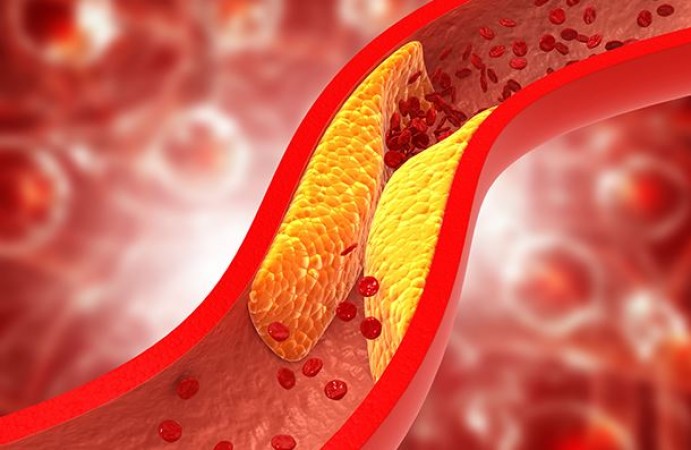
Cholesterol is a crucial component in our bodies, playing a role in cell formation and hormone production. However, it's essential to differentiate between "good" (HDL) and "bad" (LDL) cholesterol. While cholesterol is necessary for various bodily functions, high levels of LDL cholesterol can contribute to serious health issues such as brain strokes and heart attacks. Let's explore how simple lifestyle changes and a healthy diet can help control high cholesterol levels.
1. Incorporating Fenugreek Seeds (Methi Dana) into Your Diet
Fenugreek seeds, commonly known as Methi Dana, are considered highly effective in reducing cholesterol levels. These seeds can be consumed in the form of lentils or by soaking them overnight and drinking the water. The rich fiber content aids in reducing cholesterol absorption in the body.
2. Nuts: A Powerhouse of Healthy Fats, Fiber, and Protein
Nuts such as almonds, walnuts, and pistachios are packed with healthy fats, fiber, and protein, making them an excellent choice for lowering cholesterol levels. Including a handful of mixed nuts in your daily diet can provide a significant boost to your heart health.
3. Oats: A Source of Beta-Glucan for Cholesterol Control
Oats are a great source of beta-glucan, a type of soluble fiber that helps reduce LDL cholesterol. Starting your day with a bowl of oatmeal or incorporating oats into a morning smoothie can contribute to managing high cholesterol levels effectively.
4. Garlic: Rich in Allicin and Anti-Inflammatory Properties
Garlic contains allicin, a compound known for its cholesterol-lowering properties. Additionally, garlic possesses anti-inflammatory effects that can aid in maintaining healthy cholesterol levels. Including garlic in your cooking or taking garlic supplements can be beneficial.
5. Green Tea: Packed with Antioxidants for Cholesterol Control
Green tea is rich in antioxidants, particularly catechins, which have been associated with lowering cholesterol levels naturally. Regular consumption of green tea can be a simple yet effective addition to your daily routine for cholesterol management.
6. Fruits: A Natural Source of Fiber and Vitamins
Fruits are not only delicious but also provide essential fiber and vitamins that contribute to cholesterol control. Seasonal fruits like apples, bananas, berries, and citrus fruits can be included in your diet to enhance heart health.
7. Healthy Cooking Oils: Opting for Unsaturated Fats
Choosing the right cooking oils can significantly impact cholesterol levels. Olive oil, avocado oil, and canola oil are examples of healthier alternatives to saturated fats. These oils contain monounsaturated and polyunsaturated fats that can contribute to better cholesterol profiles.
8. Regular Exercise: A Key Component of Heart Health
In addition to dietary changes, regular physical activity is crucial for maintaining overall cardiovascular health. Exercise helps raise HDL (good) cholesterol and lowers LDL (bad) cholesterol. Incorporating aerobic exercises, such as brisk walking or jogging, can be beneficial.
9. Omega-3 Fatty Acids: Found in Fatty Fish and Flaxseeds
Omega-3 fatty acids are known for their heart-healthy benefits. Fatty fish like salmon, mackerel, and sardines, as well as flaxseeds, are rich sources of omega-3s. Including these in your diet can contribute to reducing triglycerides and improving cholesterol levels.
10. Managing Stress: A Holistic Approach to Heart Health
Stress can have a negative impact on cholesterol levels and overall heart health. Incorporating stress-management techniques such as meditation, yoga, or deep breathing exercises can complement dietary and lifestyle changes for better cholesterol control.
In conclusion, managing cholesterol levels involves a holistic approach that combines dietary modifications, regular exercise, and stress management. By incorporating these simple yet effective changes into your lifestyle, you can take significant steps towards maintaining a healthy heart. It's essential to consult with healthcare professionals for personalized advice and to monitor cholesterol levels regularly. Remember, small changes can lead to significant improvements in your overall well-being.
Breakfast Choices and Cancer Risk: What You Need to Consider for a Healthier Start to Your Day
How worn out is your Android phone's battery? This is how you can know
How to Maintain Balance Between Social Media and Your Mental Health